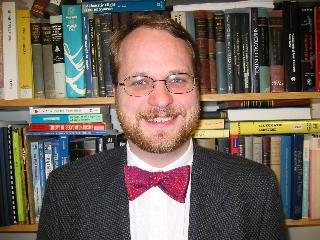Circuits for Electronic Music
Lecturer: Kent LundbergThis course covers the analysis and design of electronic circuits for music synthesis. Topics include audio generation, subtractive synthesis, frequency modulation, and some digital techniques. Analog circuits such as voltage-controlled oscillators, filters, and amplifiers, as well as timbre modulators, effects boxes, interfaces to microcontrollers, and other op-amp applications are explored. Optional course content on synthesizer history, music appreciation, and performance.
- Introduction to Circuits for Electronic Music
- Characteristics of sound and synthesis techniques
- Electronic music and references
- Keyboard control
- Some op-amp applications
- Some nonlinear circuits
- Oscillators
- Circuit building blocks
- Time-domain oscillators and waveform shaping
- Sinusoidal oscillators
- Wien-bridge oscillator and friends
- Measurement and control
- Voltage-to-Frequency Converters
- Voltage-to-frequency converters
- The zoo circuit
- Musical VCOs
- Other VFC applications
- Transfer Functions and Filters
- Transfer functions
- Analog computers
- Vector geometry
- Filter circuits
- Operational transconductance amplifiers
- Filter Topologies
- Block diagrams
- State-variable filters
- OTA filter circuits
- OTA circuit circuits
- Voltage-Controlled Filters
- High-order feedback filters
- Famous filter circuits
- Moog, ARP, Roland, Korg
- Drum Circuits
- Trigger and envelope
- Shell, impact, and snares
- Bass and snare drums
- Clang and sizzle generators
- Cymbals, hihats, and bells
- DR-110, TR-808, and TR909
- Effects Circuits
- Distortion and fuzz
- Compression and gate
- Reverb and delay
- Phasers, chorus, and flanger
Custom Courses
Custom courses, tailored specifically to your needs, are available. Inquire within.
Lecturer

Kent H. Lundberg is an educator, consultant, and historian. He is president of Keeling Flight Hardware, Ltd., which provides design, research, and educational consulting services in the fields of aerospace, electronics, and control systems for companies, universities, and government organizations.Since 2008, Dr. Lundberg has been a Visiting Professor at Olin College of Engineering, where he teaches courses in controls, circuit design, and instrumentation. From 2002 to 2005 and in 2011, he was a Lecturer with the Department of Electrical Engineering and Computer Science at the Massachusetts Institute of Technology. His research and teaching interests include the application of classical control theory to problems in analog circuit design, and the development of educational toys (lecture demos, take-home laboratory kits, and tutorial computer applications) for feedback systems and control engineering.
Dr. Lundberg was the Associate Editor for History of IEEE Control Systems Magazine from 2004 to 2011. He attended M.I.T. earning a Bachelor's degree in physics in 1992, and a Ph.D. in electrical engineering in 2002. He owns 43 Tektronix oscilloscopes, and he obsessive-compulsively collects analog synthesizers, technology artifacts, and classic textbooks on radar, nuclear energy, analog computing, and control.
Last updated at 10:11 on Thursday, 10 Jan 2013. by Kent Lundberg